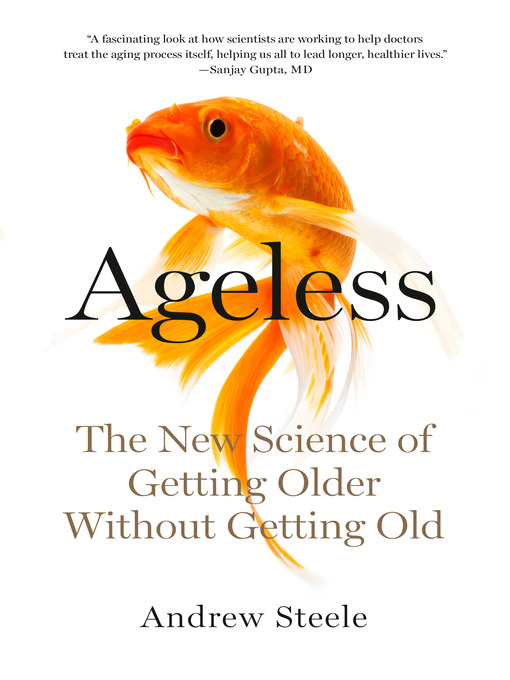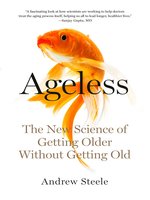-

January 1, 2021
An optimistic exploration of aging. "No matter where you live in the world," writes British science writer Steele, "you're very likely to live long enough to experience the frailty, loss of independence and diseases associated with getting old." The astounding doubling of life expectancy since 1800 (from 40 years to 80) has occurred without any treatment for aging. All advances, including sanitation, better diet, and vaccines, have focused on preventing premature death. Yet tortoises and many other coldblooded animals display "negligible senescence": Their bodies don't seem to deteriorate with age. Amazingly, a few life forms possess "negative senescence." Long regarded as an inherent feature of life, aging did not capture the interest of scientists until the 1990s, but then matters moved quickly. Readers searching for secrets of long life must absorb Steele's explanations of the hallmarks of aging, but it's worth the wait to understand the sad litany: DNA damage, malfunctioning mitochondria, deterioration of our bacterial microbiome, declining immunity, disappearing telomeres, etc. In a long section on preventing or reversing aging with drugs, transplants, procedures, and genetic manipulations, the author shows how many succeed--in the lab and small human studies. Dietary restriction, currently popular, works less well in large animals than in organisms like worms, but drugs that mimic the effect are in development. A diligent scientist, Steele does not ignore flops and fads; antioxidants flopped, but health food enthusiasts have not lost faith. The author concludes with a list of proven life-extenders, few of which will surprise readers--e.g., don't smoke, exercise, get vaccinated, take care of your teeth. Furthermore, "don't bother with supplements," and "don't bother with longevity drugs--yet." Science will eventually explain any phenomenon that obeys natural laws. The mechanism of aging obeys, so scientists will get there eventually. Once that happens, achieving a much longer life will be a matter of technology. Good science in service of a convincing case that vast life extension is inevitable.
COPYRIGHT(2021) Kirkus Reviews, ALL RIGHTS RESERVED.
-

February 1, 2021
Steele, a physicist and computational biologist who is now a science writer, is passionate about learning about aging and how to stop the diseases we associate with aging. In this debut, Steele suggests that there would be less heart disease, cancer, and dementia if we were able to stop cells from aging. He believes that if we view aging as a disease to be cured, and increase funding for biogerontology research, there is potential to allow people to live healthier, longer lives. Steele succeeds in bringing some of the ethical and policy issues surrounding the field of biogerontology, a subfield of gerontology concerned with the biological aging process, into this thorough, yet accessible narrative. While the book is an interesting overview of the history and current state of aging research in various organisms, the advice to delay aging is similar to what health professionals have been telling patients for years: make sure to exercise regularly and get seven to eight hours of sleep as well as wear sunscreen and avoid smoking. VERDICT A solid read for those interested in biological sciences research, and anyone looking to learn more about aging in general.--Margaret Henderson, Ramona, CA
Copyright 2021 Library Journal, LLC Used with permission.
-

February 15, 2021
Computational biologist Steele does his best scientific impersonation of Ponce de Le�n as he hunts for a restorative fountain of youth in this investigation of the biology of aging or biogerontology. How likely is it that medical science can one day slow down, suspend, or reverse the highly complicated process of aging? Evolution has stacked the cards against extended life spans, favoring reproductive success over longevity. Changes that occur as we get older include damage to DNA, shortening of telomeres, build-up of senescent cells, increased chronic inflammation, and malfunctioning organ systems. Steele reviews research (mostly lab studies on worms and mice) and highlights a number of hopeful hypotheses. Therapies to address the aging process might involve the use of stem cells, enhancing the immune system, and gene editing. Calorie-restricted diets do appear to increase longevity somewhat. Studies of twins and an analysis of genealogy records suggest that long life is not primarily inherited. Steele doesn't consider the potential consequences of halting physiologic aging, particularly social and economic outcomes, making for an intriguing but overly optimistic forecast for the possibility of postponing age.
COPYRIGHT(2021) Booklist, ALL RIGHTS RESERVED.







